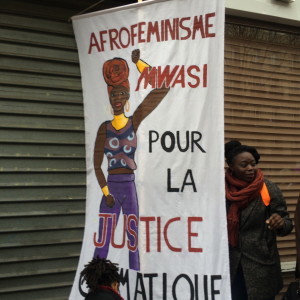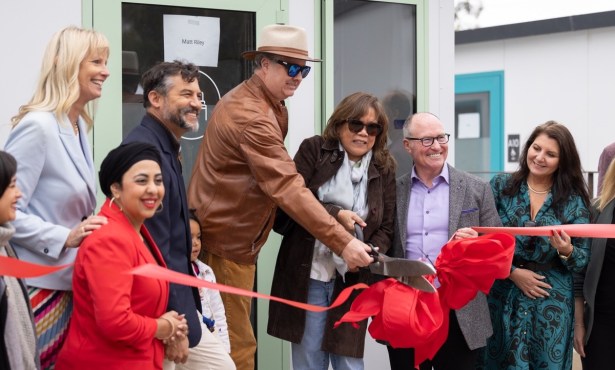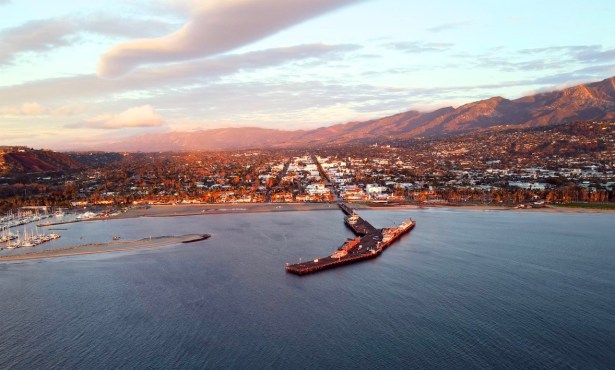Women’s Role in Climate Solutions
Few Are at Negotiating Table, but Many Contribute Efforts
Women are often on the frontlines of the changing climate, particularly in developing countries. The impacts of climate change like drought, floods, extreme weather, incidence of disease, food and water insecurity, and deforestation threaten their livelihood and their lives.
Climate change is affecting the world’s poorest countries far harder than the wealthy ones. While rich societies are better able to deal with the economic costs and health consequences of climate-driven events, poorer countries with limited infrastructure and ecosystem degradation are becoming more and more vulnerable to climate.
Climate change hits women especially hard, largely because they are over represented among the world’s poor and are thus more exposed to these dangers. Women therefore face a “double whammy” since, as the climate changes, it will be harder for them to escape poverty.

Although women are forced to bear the brunt of the consequences of climate change, we don’t find many of them at the negotiating table. Few are there to voice women’s social and economic exclusion, discuss the vulnerabilities they face, or express their innovative ideas. Yet many are already contributing to both adaptation and mitigation efforts in most parts of the world.
To leave women out of the environmental decision-making is a serious omission. This undermines the effectiveness of even the best-intentioned efforts to address climate change. The need for gender balance is becoming more evident as women are starting to show the way in addressing climate change by creating original and localized solutions to build resilient communities. The impacts of the lack of parity between men and women are appearing more and more clearly. Women leadership and representation across all sectors of climate decision-making is crucial to offer more progressive and positive outcomes.
Yet, women have remained a minority in climate negotiations so far at both the national and international level, in the global scientific body on climate change, the Intergovernmental Panel on Climate Change (IPCC), and in media debates about climate. Women represented only 32 percent of national delegation members to the UNFCCC (United Nations Framwork Convention on Climate Change) and only 19 percent of heads of delegations in Warsaw. However, things seem to be changing in Paris, and the dynamism of the few women included in the environmental decisions, like the executive secretary to the UNFCCC Christiana Figueres from Costa Rica, Laurence Tubiana from France, Mary Robinson from Ireland, or Winnie Byanyima from Uganda shows that they can make the lines move.
The mere presence of a few women at the negotiating table does not guarantee that women’s experiences and leadership will be integrated into climate change policies and protocols. Women must also be able to lead at the national and municipal levels, just as the perspectives and initiatives of civil society women must be brought to the fore. Lessons learned and the exchange of ideas are important not only across borders but also within countries.
In Paris, the role and the plight of women and more broadly of climate justice should be front and center in this conference. This not ensured in these negotiations despite the long months, if not years, many groups and collectives have put into its preparation. In order to play the leadership role they are capable of, women need to find their place in these negotiations. But with the recent terrorist attacks and the ensuing security measures taken by the French government, they need to adjust their planned approaches to get their voices heard as part of the various civil society contributions at the COP21 venue in Le Bourget near Paris and through public demonstrations in Paris.
A setting to express their views and get organized was offered by the Paris City Hall on Saturday November 29, where a meeting entitled “Feminists for Climate Justice” was held. They addressed climate-related issues affecting women all over the world and discussed links between feminist and environmental fights. They concluded that there is no climate justice without feminism. The issues examined ranged from ways of producing and consuming that favor climate and women’s equality at the same time, to how economic austerity could be replaced by ecologist and feminist alternatives that support democracy. They noted that women’s rights are a necessary condition for sustainable development and that social inequalities, financial insecurity, and climate change are closely connected to feminist fights.
This meeting was an excellent opportunity to prepare for the human chain demonstration that took place on Sunday the 29th in Paris in lieu of the Climate March that was cancelled.


